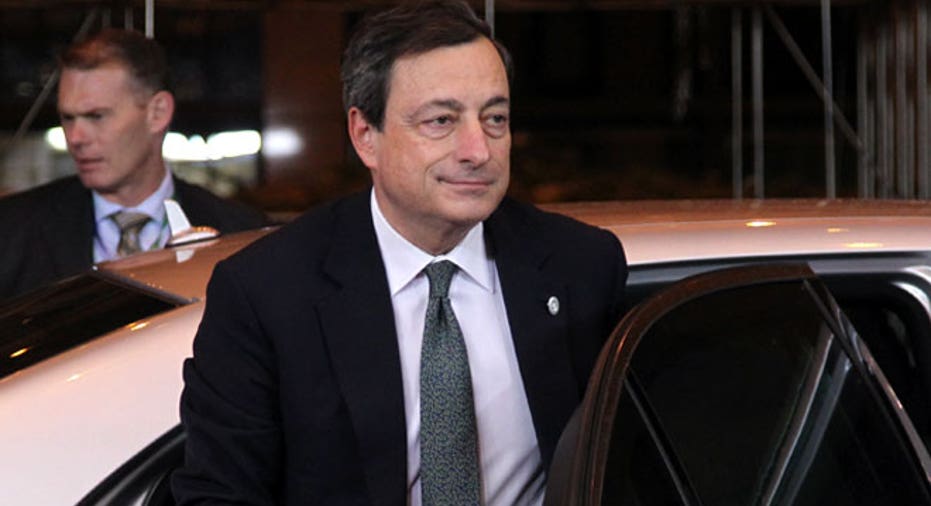ECB's Draghi: Europe in 'Very Grave' Economic Situation

Europe is an a "very grave" economic situation, European Central Bank President Mario Draghi said on Monday, but he added that euro zone governments are progressing well with efforts to put their finances in order.
Speaking in his capacity as head of Europe's recently created financial system super-watchdog, Draghi added that markets had to a large extent anticipated Standard and Poor's downgrade of a slew of euro zone countries on Friday and priced assets accordingly.
But the economic situation is serious, said Draghi, who last week left the door open to further interest rate cuts following a decision by the ECB Govering Council to leave them on hold this month at 1 percent, matching their lowest level ever.
"We are in a very grave state of affairs and we must not shy away from this fact," Draghi, speaking as head of the European Systemic Risk Board (ESRB), said in testimony to the European Parliament's Committee on Economic and Monetary Affairs.
"During the last few months of 2011, uncertainty over the sustainability of certain sovereigns and resilience of the financial system, coupled with dismal growth prospects, led to severe disturbances in the normal functioning of financial markets and of the real economy. In an attempt to counteract that development, policymakers have acted," he added.
Draghi also said that the central bank would do all it can to fight the crisis within the limits of the Treaty governing it.
He pointed to the ECB's provision last month of nearly half a trillion euros in 3-year funds to banks - an operation he said "has functioned and is functioning".
The ECB offered banks a 3-year cheap funding operation - or LTRO - in December, in which banks took a record-breaking 489 billion euros. It will offer them another in February.
The record-high use of the ECB's deposit facility did not imply that central bank funds were not circulating in the economy, the new ECB head also said, brushing off concerns that liquidity was not making its way to the real economy.
Draghi urged governments to continue implementing their budget consolidation plans to combat the euro zone debt crisis.
"National governments have to put in place serious fiscal consolidation plans. What one sees across Europe, by and large, is encouraging," Draghi said.
"We can say that full delivery is not there yet, but it's encouraging. Governments have shown will and determination."



















